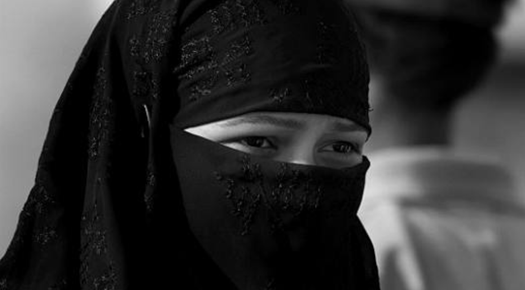
New South Wales, Australia - Moutia Elzahed, whose husband was convicted of aiding terrorism, has requested to wear her niqab while giving evidence to the court and her request was denied by Australian judge, Audrey Balla. Her husband, Hamdi Alqudsi, has been jailed for at least six years for arranging for seven would-be “martyrs” to reach Syria to fight alongside Australian terrorist Mohammad Ali Baryalei. Alqudsi was found guilty in July of organizing for the men to make a border crossing from Turkey and meet up with the notorious Isis fighter between June and October, 2013.
On Tuesday in the New South Wales district court, the judge ruled on a request from Moutia Elzahed to wear her niqab in the court. This might be one of the first rulings of its kind in Australia. She alleges that police officers assaulted her during a raid on her home in September 2014 as part of the joint counter-terrorism operation Appleby.
The issue was first raised by Elzahed’s counsel, Clive Evatt, during the hearing on Tuesday. Elzahed’s counsel told the court that he is instructed that she will not remove her veil, “if that’s the correct expression, or whatever it is,” and added that he can’t see much difference between that and giving evidence on telephone.
Judge Audrey Balla offered a number of alternatives to Elzahed, such as giving evidence in a remote room or a suggestion that the court can be closed to the public, but she declined to accept the alternatives, because there would still be male legal representatives in the room.
In making a decision, Balla said: “It is my role to ensure that there is a trial which is fair to all parties. I must balance, on the one hand, the need to respect the first plaintiff’s religious beliefs. In this case, those beliefs mean that she may choose not to give evidence, which could impact on the successful prosecution of her case.”
Judge Balla continued: “On the other hand, I must take into account whether I would be impeded in my ability to fully assess the reliability and credibility of the evidence of the first plaintiff if I am not afforded the opportunity of being able to see her face when she gives evidence.” Important indicators of whether someone is telling the truth or lying are certainly facial expressions and it certainly affected the decision of the judge.
The ruling may complicate Elzahed’s case against the police, in the absence of any evidence being obtained from her about the circumstances of the raid. The woman’s son, Abdullah George, gave evidence on Tuesday, where he alleged his mother told him that she had been assaulted during the raids. He stated that his mother said the police punched her in the face and she also said that they broke the door but the NSW police and the Australian federal police have denied wrongdoing in the case.
Similar legal dispute was conducted in Canada in 2012 after a woman who alleged she was sexually assaulted declined to give evidence against the defendants unless she was able to wear the niqab for the duration of her evidence.
Canada’s Supreme Court eventually ruled that the trial judge had not appropriately taken into account the woman’s religion. But it is still difficult to outline clearly any circumstances in which facial coverings can or cannot be worn in the court.
Photo Credits: Wikimedia
